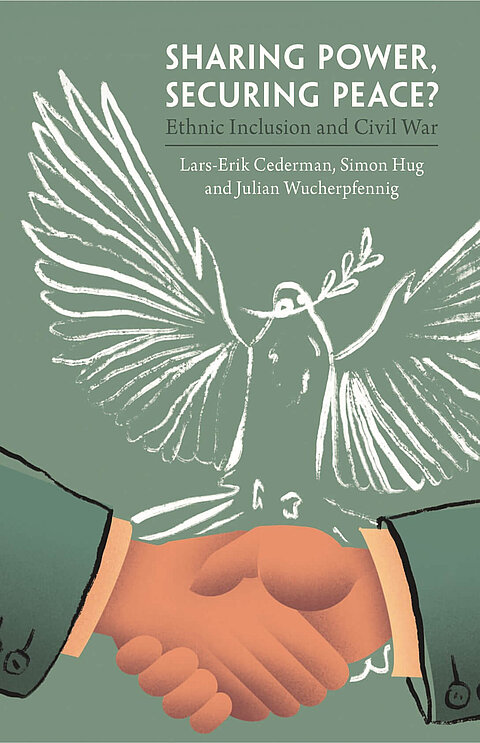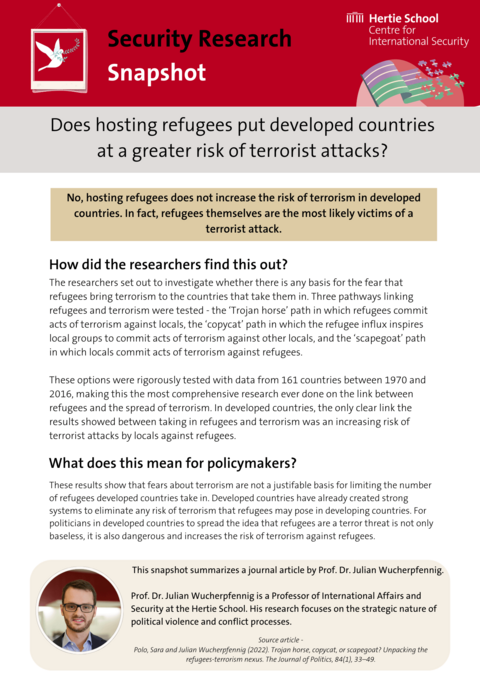
Although states are the principal actors of world politics, they are not the only ones. Indeed, recent events such as the Arab Spring, the rise of ISIS, or the ongoing migration crisis all illustrate that many contemporary challenges in international security also involve non-state actors.
The Centre for International Security researches non-state actors at various layers and in different contexts. We are particularly interested in ethnic power relations, the link between migration and political violence, as well as the role of state policies and responses towards such actors.
We address and investigate the following key challenges:
- How should multi-ethnic states be governed to prevent violent uprisings or civil wars?
- How can power-sharing arrangements be designed to maintain peace?
- Is decentralisation an effective method to placate demands for self-rule and deter the threat of secessionist violence?
- What factors are driving the ongoing migration crisis in the Mediterranean, which has tragically cost tens of thousands of lives near Europe?
- Do refugees pose a risk as a potential Trojan horse for transnational terrorist attacks?
Sharing Power, Securing Peace? Ethnic Inclusion and Civil War by Lars-Erik Cederman, Simon Hug, and Julian Wucherpfennig
Explore the complex relationship between power sharing and peace in Prof. Wucherpfennig and co-author's recent book, which uses systematic data and innovative methods to argue that power sharing, particularly when combined with central inclusion, is often the best strategy to mitigate and prevent civil conflict. Drawing from global examples, the book highlights both the successes and limitations of power sharing in multi-ethnic states, offering a nuanced perspective on this widely debated issue.



